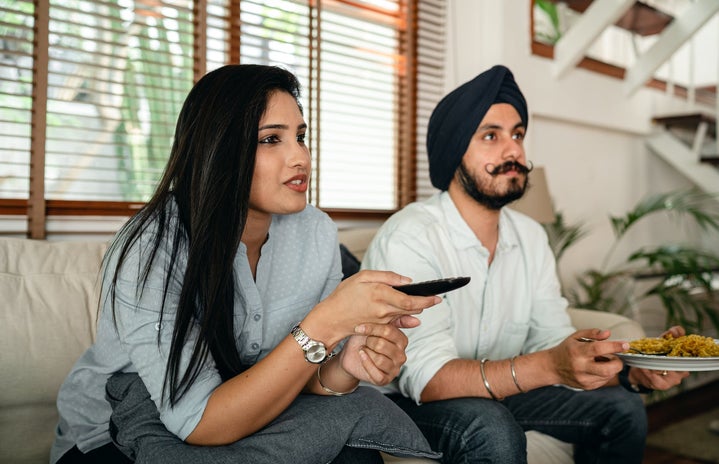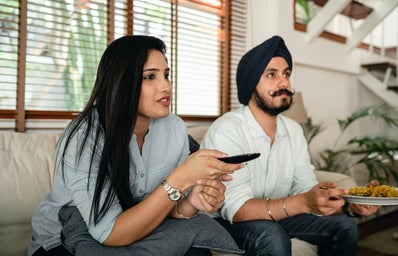A brief discussion on the CODA film, The Sound of Metal film and lowercase-d/uppercase-d identities.
I was born profoundly deaf in both ears, and my parents opted for me to have my first cochlear implant (CI) surgery at a young age. I grew up communicating orally and utilizing ASL with a sign language interpreter in my public school district. Growing up as a deaf person with CIs, I felt like I was constantly tethered between the Deaf and hearing worlds, never wholly fitting in one. In my public school, I was surrounded by hearing kids that did not fully understand what I was experiencing. I felt frustrated that my hearing peers would never understand ideas such as listening fatigue. Occasionally, I would dip my toes into the Deaf world, but I would leave with a bitter feeling that I was missing out on a community. But, I slowly started to discover Deaf politics and my place in the Deaf world. Some Deaf people identify as uppercase ‘D’ Deaf, while others identify as lowercase ‘d’ deaf. People may see Deaf with a capital ‘D’ as a cultural identity, immersing into the Deaf community. It is more appropriate for me to identify as lowercase ‘d’ deaf because I am immersed in the hearing world. I never sign, and I rarely socialize with other d/Deaf people. But, I am so proud to be a deaf woman. Growing up has helped me accept and appreciate my place between the Deaf and hearing worlds.
The Oscar-winning CODA (Child Of Deaf Adult) film affirmed and contradicted some of my beliefs. CODA was a really cute film to watch. I laughed, teared up and adored the actors. Troy Kotsur killed it and made history by being the first Deaf man to win an acting Oscar. Marlee Matlin wrote some of my favorite childhood books that affirmed my deafness. Matlin and Daniel Durant were in Switched at Birth as well. I applaud the filmmakers for casting Deaf people. But, I have a few issues with this film. For example, where are the professional interpreters in this movie? It’s unrealistic that Ruby had to interpret for her family at the doctor’s office and legal proceedings. The family’s constant dependence on Ruby perpetuates dangerous stereotypes that d/Deaf people are incapable of advocating for themselves. Additionally, it would have been nice if more d/Deaf people were involved in the film, especially as writers and directors. They could have also casted an actual CODA for Ruby’s role as well.
I could get into more reasons why I liked and disliked this film. For the sake of time, I’m only going to add this: please do not watch CODA and think that this is every d/Deaf person’s (or CODA’s) experience. All d/Deaf people experience their deafness differently. Some people with hearing loss use sign language, while some don’t. Some use assistive technology (like hearing aids or cochlear implants), while others choose not to or don’t have the privilege to. Remember that hearing loss is a spectrum, and that we are all different.
As a CI user, I related to The Sound of Metal film much more. This movie showed the hearing world and the uppercase ‘D’ world. The film ends with the main character, Ruben, beginning to accept his new place in between these two worlds. I also really appreciate this movie because it perfectly captures the reality of post-cochlear activation. When Ruben listens with his implants for the first time, it sounds horrible. The computerized sounds are uncomfortable and scratchy. It is not like those tear-jerking online videos that you see of people hearing for the first time with their CIs. (Sorry to break it to you, but that baby is not crying because they’re hearing their parent’s voice for the first time. It’s because the sounds are initially uncomfortable.)
This movie ends with Ruben taking off his CIs to enjoy the silence. Although this could be perceived as him abandoning his hopes for restoring his hearing, I saw this as him getting in touch with his deafness momentarily. Although the actor that plays Ruben (Riz Ahmed) is not d/Deaf, I feel that he perfectly represented the emotions of cochlear implant activation. As a lowercase ‘d’ deaf person, I deeply related to his tethering in between the Deaf and hearing worlds.
I sincerely hope that we can get more d/Deaf media portrayals. The success of CODA does not take away from the success of The Sound Of Metal or any other d/Deaf stories, and vice versa. Let us remember that d/Deafness is a spectrum, and not walk away from any movie or TV show thinking it is the experience of all d/Deaf people.


